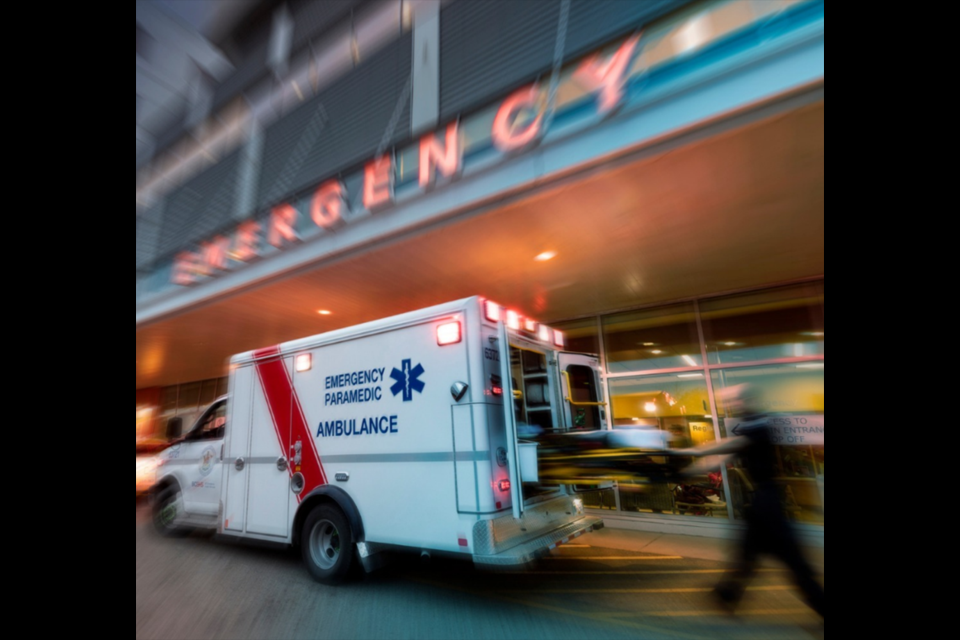Burnaby isn’t meeting the national benchmark for ambulance response times, according to the president of the B.C.’s ambulance paramedics union.
Troy Clifford, president of the Ambulance Paramedics and Emergency Dispatchers of B.C., appeared as a delegation to Burnaby city council on Dec. 12, asking for renewed pressure on the provincial government for better ambulance service.
The ambulance service has a goal to meet the national benchmark for response times of 8.59 minutes in urban areas for the most serious of calls, such as heart attacks and strokes.
“We know from BCEHS’s own stats in Burnaby, we’re not meeting that threshold,” Clifford told council. “They’re over 11 minutes in most cases.”
“It’s tragic, and we know that our partners in the RCMP here and fire first responders are sitting with patients for longer and longer periods of time. That is not appropriate. Nevermind the fact that it’s horrible for those patients that are sitting in those situations,” Clifford said.
He stressed that 8.59 minutes in an emergency feels like “an eternity.”
Clifford said the Ministry of Health committed last year to meet the national benchmark in the 90th percentile but added little has been done since then to meet that commitment.
He said the relationship between the paramedics’ union and municipal governments is “not what it should be.”
“That’s primarily because of the relationship under the provincial government, we don't work under the municipal … budgets,” Clifford told council.
Clifford said, about 10 years ago, their portfolio was moved from a standalone entity to the health ministry.
He said this move caused a separation with other public safety occupations like police and fire.
“We all know that emergency management, planning and working together with our partners in police and fire and other public safety occupations, is instrumental in delivering our services. So, what’s happened is we’ve diverged from that. And we’re trying to push that back.”
Clifford said council and the union need to put pressure on the provincial government to meet the benchmarks but noted that Burnaby has an added challenge: only one ambulance station.
“Specifically, Burnaby has a little more challenge because you only have really one station in Burnaby. And those of us that know Burnaby very well know that you can’t get to the corners or most areas in Burnaby in 8.59 minutes from our station on Imperial.”
Burnaby’s lone ambulance station is the B.C. Emergency Health Services Facility at 5901 Delesalle St., a few blocks from the intersection of Imperial Street and Kingsway, near Royal Oak SkyTrain station.
The North Burnaby ambulance station at 925 Douglas Rd. closed in 2020.
Clifford told council there wasn’t a formula that would calculate a certain number of ambulances per number of residents or number of calls.
He suggested, ultimately, returning the paramedic and ambulance services to a standalone service, accountable to a board, as before to better work with public safety partners and health authorities.





